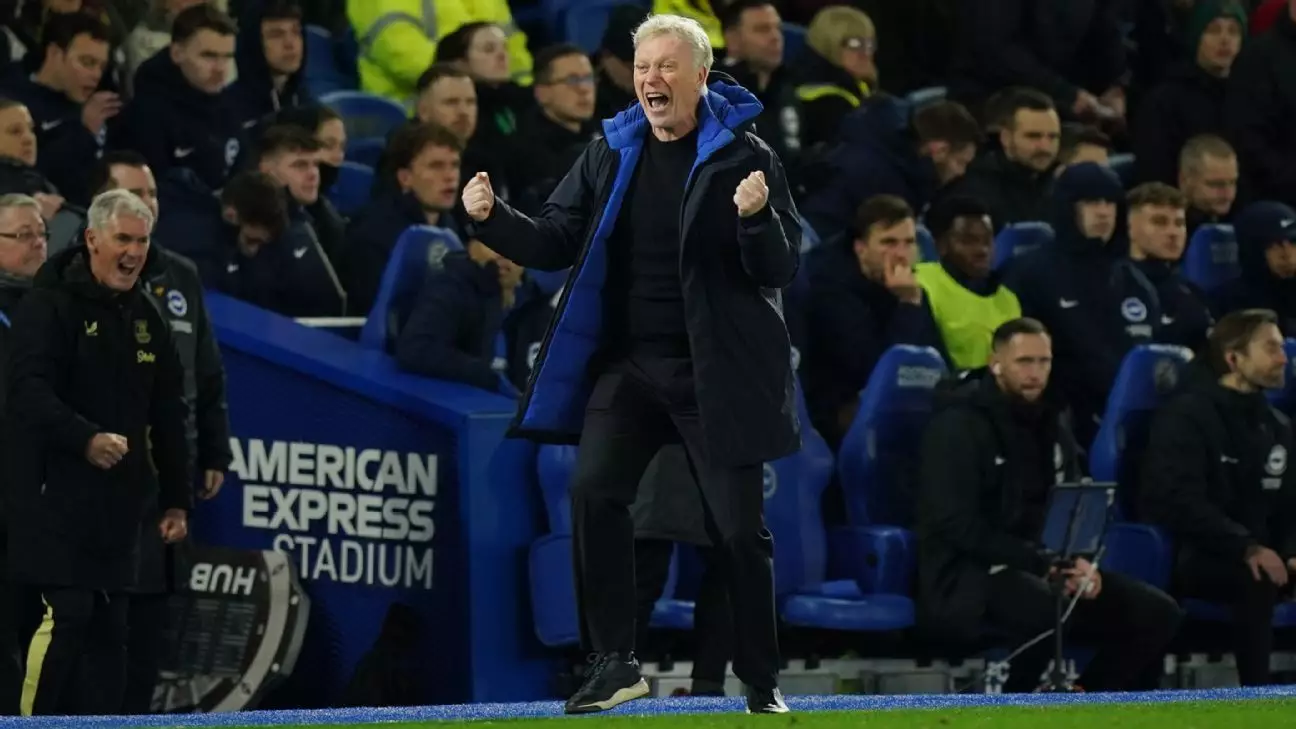Everton’s manager David Moyes etched his name deeper into Premier League history by reaching the 700-game milestone during a hard-fought 1-0 victory over Brighton. Celebrations were muted, however, as the triumph was somewhat overshadowed by concerns regarding the fitness of key players Dominic Calvert-Lewin and Orel Mangala. It’s telling that even amidst professional accolades, the state of his squad weighed heavily on Moyes’ mind, reflecting the dual pressures faced by managers in the Premier League.
The match itself was a testament to Everton’s defensive resilience. Iliman Ndiaye’s penalty secured the victory while the team held firm against mounting pressure from Brighton, particularly in the second half. Despite conceding possession and enduring relentless attacks, Everton maintained composure and organization, showcasing a blend of grit and tactical discipline. Moyes recognized the imperfection in their performance but also emphasized the mental fortitude displayed by his players, which is often crucial in high-stakes matches.
Though the win brings Everton seven points clear of the relegation zone, a deeper analysis reveals issues that need addressing. Moyes acknowledged that the team’s performance had not yet met his expectations: “In some areas, we needed to play better.” This admission signals an awareness that while immediate results are vital, the long-term sustainability of the team’s success relies on consistent improvement and player development.
Calvert-Lewin and Mangala’s injuries could pose significant challenges for Moyes and his strategic plans moving forward. Calvert-Lewin departed the match in the early stages, potentially sidelining him for crucial upcoming fixtures, while Mangala’s late exit added to the worries. Moyes’ hesitance to confirm the severity of these injuries reflects not just concern for individual players, but an overarching anxiety regarding squad depth and reliance on key contributors. A team’s ability to navigate these setbacks often defines its character in the long run.
The current landscape for Everton is about survival, and Moyes himself highlighted this pragmatic approach. While fans may desire a return to the team’s historically attractive brand of football, the pressing need for points suggests that a temporary shift towards more substance over style is necessary. “We need to get ourselves out of trouble,” Moyes stated, alluding to the crucial nature of results in the immediate term to stave off relegation anxieties.
As Moyes reflects on his 700 games in the league, he recognizes the significance of the journey while remaining grounded about what lies ahead. Standing in the shadows of legendary coaches like Sir Alex Ferguson and Arsène Wenger is impressive, yet he is cognizant of the work that remains. Transitioning from a survival mentality to one focused on re-establishing Everton’s identity as a competitive force in the league is the challenge ahead. In this resolute pursuit, the ethos of determination and resilience exemplified by his recent squad efforts will be put to the ultimate test.

